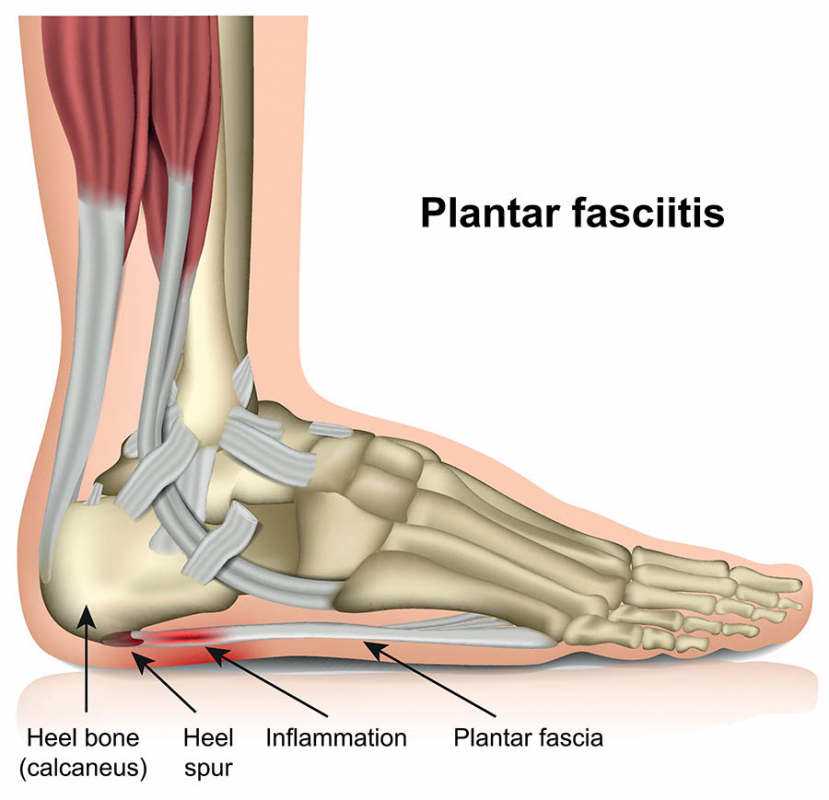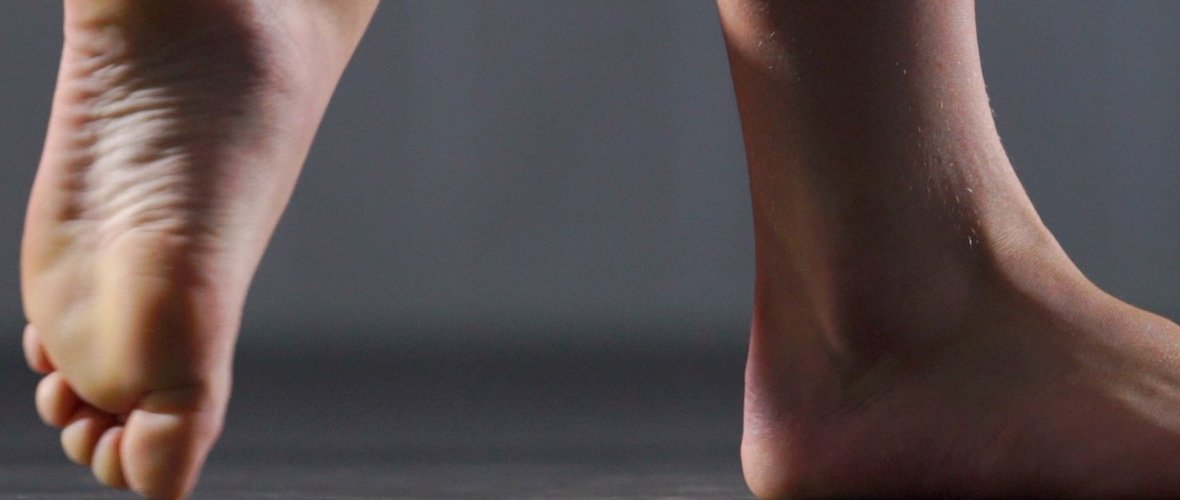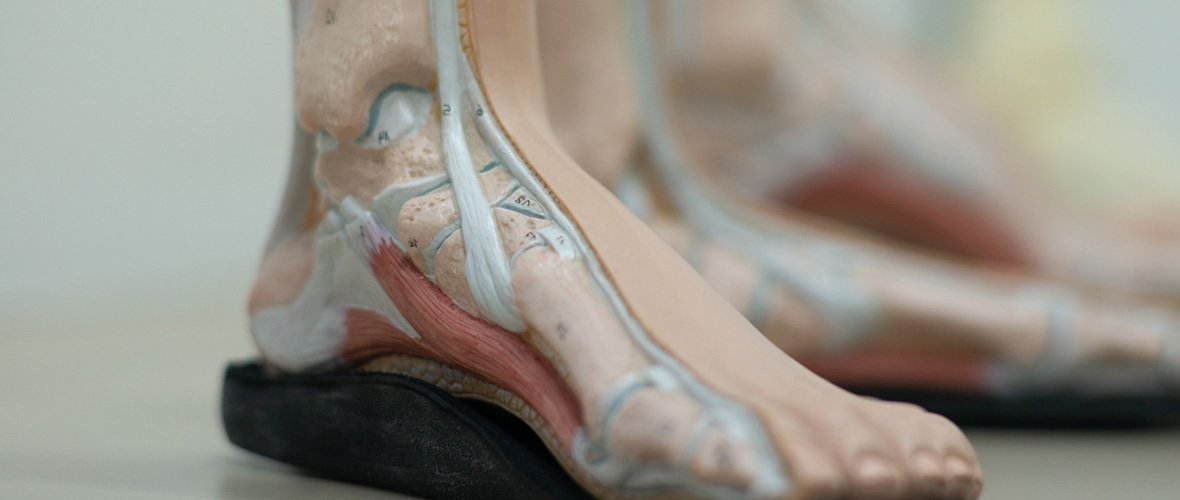Plantar Fasciitis Podiatrist in Adelaide
Do you dread taking those painful first steps in the morning?
After sitting and enjoying a chat with friends do you get stabbing pains as you stand? Has exercise lost its appeal as you battle with searing heel pain?
If any of the above sound familiar, you could be suffering from plantar fasciitis. One of the most common causes of heel pain, plantar fasciitis (otherwise known as heel spur syndrome) is a painful, yet highly treatable, condition.
What is the plantar fascia?

The plantar fascia is a thick band of connective tissue that runs from your heel bone and fans out towards the front of your foot, attaching to the base of your toes. The plantar fascia plays an important role in acting as a shock absorber for your feet and stabilising your joints and arch during impact with the ground.
While an amazing and vital part of your foot’s anatomy, inflammation, tearing and a thickening of the fascia’s soft tissue results in sharp pain and limited mobility. This damage usually occurs due to overuse or over stretching.
Have a Question?
Send us a message and we’ll be in touch with you right away.
Common Triggers for Plantar Fasciitis
Book an Initial Consultation
For our highly trained podiatrists, treating plantar fasciitis is all in a day’s work. There are many options for treatment, ranging from stretching and strengthening regimes, icing and rest, to shockwave therapy and custom orthotics. At your initial consultation we’ll discuss the most effective plan for your condition and work in partnership to achieve life-long relief.
Book your appointment at Brighton Road Podiatry today and start living your best life with healthy, pain-free feet.
Call today or book on-line and take your first step towards feeling great again! 08 8298 4166

Plantar fasciitis, also known as ‘first step pain’ can occur if you’re too flexible, leading to fallen foot arches, or from tightness that pulls on the arch, or simply from poor foot posture.
Dolores Pilkington
Plantar Fasciitis FAQ
Everyone is different. It may be due to how flexible/ inflexible your foot arch is, your gait cycle, or due to foot posture issues. It’s important to see a qualified podiatrist who can find the root of the problem. Each foot is different!
It depends on severity of your pain but in most cases the patient is able to continue walking and normal activities. We recommend you always do a little stretch and get some circulation going before you take your first step out of bed in the morning or after sitting for long periods.
Yes, with proper management and professional advice from a podiatrist you are likely to gradually improve and recover from plantar fasciitis. Getting help promptly can shorten the duration of the injury. Often the longer the you’ve had it, the longer the treatment time.




